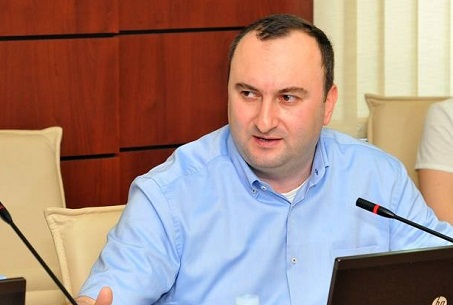President speaks out after election of controversial judge in Court of Appeals

President of Georgia Giorgi Margvelashvili has spoken out about the election of controversial judge to the Court of Appeals of Georgia.
Judge Levan Murusidze, who currently serves as a Secretary of the High Council of Justice (HCoJ) – an independent judicial body – and also a Supreme Court judge, was elected as a lifetime judge of the Court of Appeals by the HCoJ.
His re-election as a judge was condemned by local non-government organisations and the opposition, who said Murusidze’s name was tarnished and related to several notorious, high-profile cases under the previous state leadership; the Sandro Girgvliani murder case in 2006 among them.
The critics claimed Murusidze delivered "unfair verdicts” on the cases he presided over and the "injustice” was recognised by international courts’ repeated verdicts on the cases.
Such a negative attitude to such [elections] has been formed in the public for years based on the cases that united Georgians and alarmed the European Court of Human Rights,” Margvelahsvili said.
I want to tell the public that a single member who represents the President in the HCoJ refused to participate in the voting [for Murusidze] today.”
The major priority of the state is to produce an independent judiciary. The fight to create a fair court in Georgia is ongoing and I will bring the battle to the end,” President Margvelashvili stressed.

President of Georgia made a special statement concerning the recent elections of the judges for the Court of Appeals of Georgia. Photo by the President of Georgia's webpage.
The appointment as a judge of the Court of Appeals was likely to be of utmost importance for Murusidze as his term in the Supreme Court will expire in April 2016. If he failed to be reelected as a judge at the Court of Appeals he would automatically lose his Secretarial post in the HCoJ after April next year.
More than 100 applicants applied for the vacant 61 Court of Appeals judge positions. To be appointed, a candidate must gain two thirds of votes of 14 Council members as the head of the HCoJ, head of the Supreme Court of Georgia, had no right to vote.
Murusidze gained 10 of 14 votes from the HCoJ members; one voted against him and remaining three abstained from the vote. The election process to fill the other judge positions was still in progress.
During the election period Murusidze said no one had the right to interfere in the activities of the HCoJ and noted the President’s statement was a form of pressure on the independent body.
The President’s statement when the elections process is not still complete could be regarded as pressure on the HCoJ. Like the Court, the HCoJ is an independent body and no one has a right to interfere in its activities,” Murusidze said.
In his previous statements Murusidze said judges generally made verdicts based on the evidence provided by the defence and prosecution at trials.
Assessments of majority and opposition
Member of the parliamentary majority, the Georgian Dream coalition, Eka Beselia said the ruling party and the Government stood away from the judge election process as they did not want to influence in the process.
The court system is independent and we never interfere in its activities. The HCoJ made its decision, I can say the hard decision, alone,” Beselia said.
Head of the opposition Free Democrats, Irakli Alasania, said "electing Muruslidze was offensive for the whole Georgian society.”
He accused the current Government members of supporting the judge.
What is the High Council of Justice?
The HCoJ is an independent body created to coordinate the country’s judiciary system and to promote effectiveness and the independence of the judiciary.
The main functions of the HCoJ are:
- Organisation of the qualification exams of judges;
- The selection and appointment of judges for trial and appellate courts;
- Disciplinary proceedings;
- Legislative drafting and analytical work; and
- Quality management and fostering relationships with the public.
The HCoJ consists of 15 members. Through changes to the law on Common Courts in 2013, the President and chair of the Supreme Court were deprived of the right to nominate the candidates for the Council and membership of Members of Parliament (MPs) was also banned.

More than 100 applicants applied for the vacant 61 Court of Appeals judge positions. Photo by the tbappeal.court.ge.
Instead, the Parliament elected five non-judge members to the Council from candidates nominated by legal advocacy NGOs, the Georgian Bar Association, law schools and tertiary institutions. Eight judge members were elected by the self-government body of Georgia’s Common Courts - the Conference of Judges. The President of Georgia had the right to nominate a single candidate in the body.
Previous developments
The current HCoJ was composed in 2013 under the Government of Georgia and Murusidze became the Secretary through the solution of the Conference of Judges.
However the new staff were not welcomed by Georgia’s Minister of Justice Thea Tsulukiani, who said "some members of the Council should not have been elected by the Conference of Judges due to their previous activities.”
Meanwhile, then-Chairperson of the Supreme Court Kote Kublashvili, who took the post under the previous state leadership, criticized Tsulukiani for her statements and stressed the process was "transparent” and that judges had not been suppressed by anyone.
 Tweet
Tweet  Share
Share